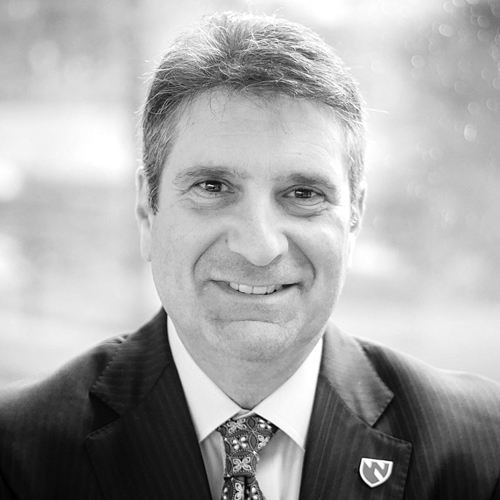Employers are increasingly embracing the benefits of healthy workplaces with some version of company-sponsored wellness programs. But there have also been mixed reviews on whether these programs yield a financial return to the businesses that sponsor them. The RAND Corporation published a study in 2013 that found many programs in the $6-billion workplace wellness industry do not yield a convincing return on investment.
However, even a single healthier employee might be considered a victory. At least one company can objectively claim success in providing proactive health solutions that have a positive return on investment: EXOS.
“The elegance is in the simplicity,” Jeff Terrill, EXOS president, says. “Seventy-five percent of all chronic disease is caused by four factors: food choices and portion size, physical inactivity, stress, and tobacco use. These factors are also responsible for 81 percent of all hospital admissions, and these factors are controllable.”
EXOS’s proprietary methodology provides pathways to improved health and performance that are broadly applicable to the full employee population. Based in solid science, the company’s methodology achieves a high level of participation—including for the employees who need it most.
The company’s methodology includes what they call the four pillars of human performance: mindset, or dedicating oneself toward a goal with a full understanding of what it requires to accomplish it; nutrition, or the foundational support to fuel mind and body performance; movement, an essential for improving performance that focuses on moving your body better; and recovery, which allows the mind and body to re-energize and prepare for the next day’s demands.
“We provide companies with flexibility to calibrate our performance solutions across a continuum of location types.”
By design, each of the four pillars is integral and essential to the others. Terrill explains how mindset, for example, is fundamentally important because it drills down to individuals’ core motivations. “This is where we break ambivalence, where we get to what their ‘it’ is,” he says. “For example, a participant might say, ‘My back pain is so bad I can’t play with my kids.’” When an EXOS coach helps that person to develop a stronger, pain-free body, the individual is inclined to stay in the program to achieve other goals as well.
EXOS currently services 150 companies, which includes 25 percent of the Fortune 100. A comprehensive institutional review board clinical study of the EXOS program at one of those Fortune 100 companies found that they achieved superior health outcomes compared to a wellness study group. An independent actuarial study at Cancer Treatment Centers of America found that for every dollar spent, a return on investment of $2.96 was achieved in lower healthcare costs and lower absenteeism.
Terrill’s journey to lead EXOS—itself a division of a broader enterprise that provides similarly structured performance solutions to student and professional athletes and elite military—started from the other side of health, that of a reactive mode. He formerly served in executive roles responsible for health plans, managed care operations, medical groups, and health insurance, including industry leaders such as Cigna and Aetna. In these positions, he was dealing with the disease side of healthcare, helping people live with illness—a stark contrast to proactive health, which focuses on disease avoidance or elimination.
“When the recruiter called me for this position, I initially thought it was an odd fit, because I thought EXOS served only elite performers,” Terrill says. “But I appreciated EXOS’s different approach and learned how diverse the served population was.” Terrill reflects on how, in the thirty years prior to this position, he witnessed the prevalence of disease explode. For example, the rate of diabetes increased from one in fifty people to one in ten, and obesity rose from 10 percent of the US population to what now approaches about 40 percent. “I asked, ‘What’s wrong with our healthcare system?’” he recalls. He experienced, in granular detail, the costs of taking care of diseases. Proactive health, he notes, is far more effective and less expensive.
“EXOS had the answers,” Terrill says. So he took the position and went to work. Being physically active himself and an avid runner in relatively good shape, he was surprised to find through the company’s assessment measurements that his performance was suboptimal, that he needed to hydrate more, get better sleep, work on strength training, and train for movement quality. The changes are palpable, he says, “a testimony of my own performance improvement as a result of behavior upgrades,” as he describes it. His personal benefits include eliminating knee pain and optimized biometrics, which all occurred without prescriptions. “Food and fitness are medicine,” he says.
The changing nature of work and workplaces requires EXOS to evolve and adapt with them. “This means we provide companies with flexibility to calibrate our performance solutions across a continuum of location types,” he says. For example, a gym isn’t necessary for the program to work, as many off-site work locations are too small to justify the costs of an on-site fitness facility. EXOS can utilize spaces such as conference rooms to draw in participants who might be intimidated by weights, machines, and mirrors for “no sweat” movement sessions. EXOS’s digital technology capabilities allow its programming to reach an employer’s entire population, even those who work at home.
Proof is there that there are as many ways to become healthy as there are to get sick. For Terrill, who has worked on both sides of the equation, proactive health is more than obvious.


